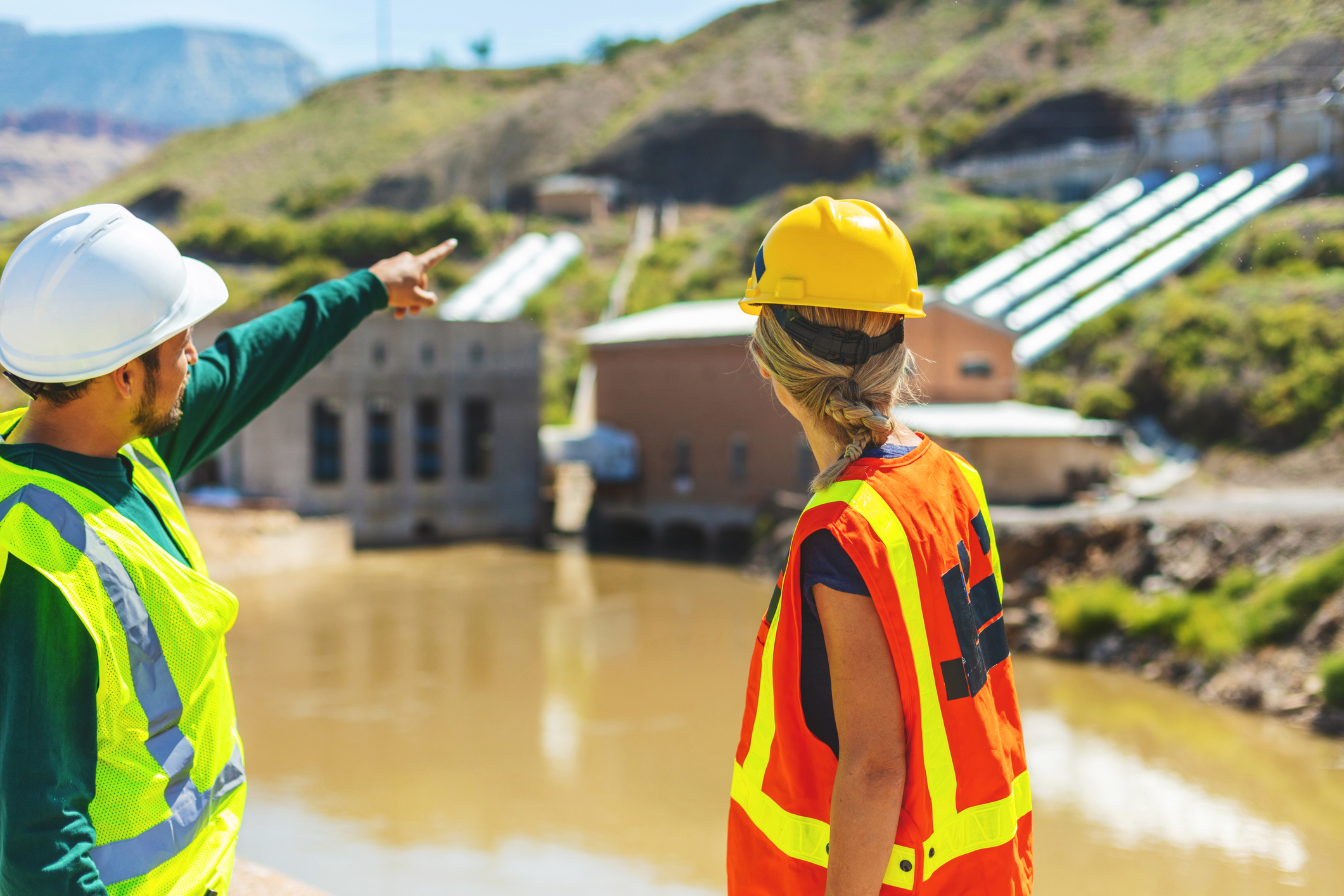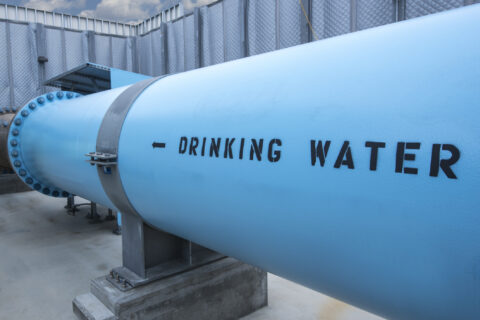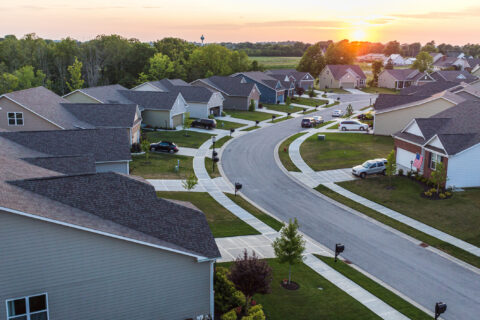Co-authored by Becky Anderson, M.S. Program Manager, WaterNow Alliance and joni m palmer, Ph.D., APA, ASLA, Project Director, Southwest Environmental Finance Center
Clean water infrastructure needs, including wastewater treatment and water quality improvements, total $630.1 billion nationally over the next 20 years. Similarly, the national drinking water infrastructure needs represent another $625 billion. Unprecedented levels of funding under the Bipartisan Infrastructure Law (BIL), federal grants, and State Revolving Funds (SRFs) offer increased support for water infrastructure challenges. As the need for water infrastructure improvements grows, so does the need for no-cost support to help communities secure funding.
Research (PDF) conducted by the Southwest Environmental Finance Center (SWEFC) reveals that many communities struggle to identify and secure this funding for water system operations, maintenance, and needed improvements, rehabilitations, and replacements. These communities face numerous challenges when seeking infrastructure funding, including:
- Lack of awareness about funding opportunities
- Insufficient staffing capacity to pursue funding applications
- Difficulty in identifying the right funding at the right time for the appropriate project
- Challenges in building partnerships with local and regional organizations to support funding applications
- Need to build trust with communities and secure local commitment to water infrastructure projects
Free technical assistance programs for communities can help address these challenges.
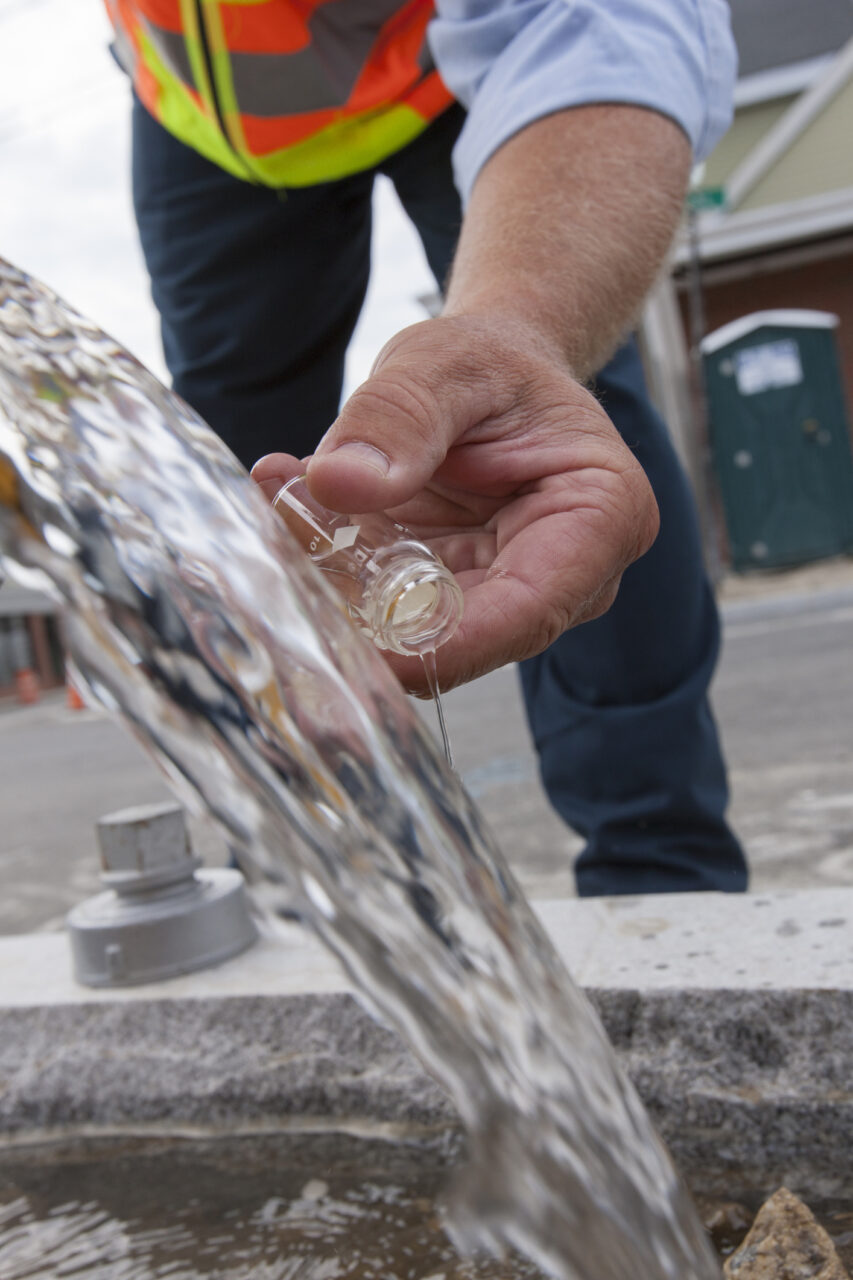
Technical assistance providers working to help water utilities secure federal funding for water infrastructure improvements are grappling with how to identify communities most in need of federal funding. Once identified, groups like SWEFC and WaterNow Alliance (WaterNow) are working to support communities’ water infrastructure projects – from technical planning to community engagement and trust building.
Building Place-Based Partnerships: An Example from the Field
Effective place-based partnerships are crucial for building community capacity and securing sustainable water infrastructure funding. By fostering trust and collaboration, technical assistance providers can help communities overcome funding challenges and create resilient water systems.
The Aguas del Norte Alliance exemplifies this by bringing together small and rural public drinking water systems in Northern New Mexico to network, share resources, and discuss solutions. Formed through collaborations with the SWEFC, the New Mexico Environment Department, and other local entities, including the Rural Community Assistance Corporation (RCAC) and the New Mexico Rural Water Association (NMRWA), the SWEFC conducts Lead Service Line Inventory workshops and prepares water system boards for state funding applications. Past meetings have also focused on how to share information and resources with peer systems, how to access technical assistance, and how to prepare for emergencies.
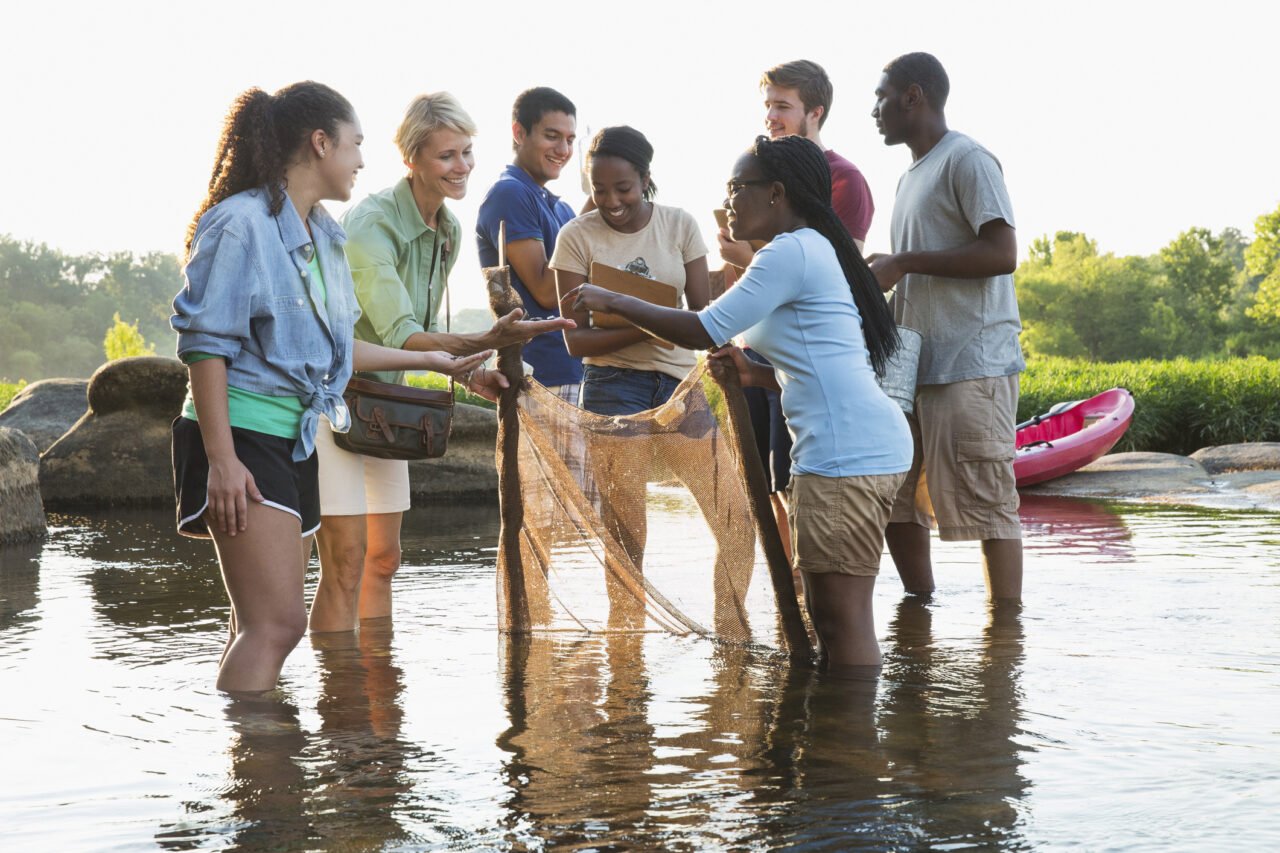
Central to the success of these partnerships is the SWEFC’s involvement through the EPA’s H2O Community Solutions Teams (CST) program. The SWEFC started working with small water systems through CST in 2022, collaborating with interested states, Tribes, and territories. Despite the program ending in 2023, the relationships and frameworks established during its tenure have endured. The quality relationships built through CST have ensured that the systems in the alliance remain resilient and well-supported. By fostering these partnerships and providing targeted technical assistance, the SWEFC and its partners help communities overcome funding challenges and build the capacity needed for sustainable water infrastructure management.
These efforts were supported by the Building Blocks of Trust initiative from WaterNow and River Network, which provides a framework for creating strong, trust-based partnerships between water utilities and community groups. Learn more about the initiative in the resources section below.
What Resources Can Support Your Community?
Several programs and resources are available to support local leaders in building place-based partnerships to bring home more water infrastructure dollars.
Environmental Justice Thriving Communities Technical Assistance Centers (EJ TCTACs) Program
In partnership with the U.S. Department of Energy, EPA has selected 17 EJ TCTACs to support municipalities, Tribes, and community-based organizations in building capacity to apply for and manage federal funds for environmental justice work. The EJ TCTACs will also create tools, resources and learning opportunities for environmental justice practitioners. SWEFC collaborates with the EJ TCTAC Program at the regional level through the South Central Thriving Communities Technical Assistance Center (SC TCTAC), while NLC collaborates with the EJ TCTAC Program at the national level. Communities can visit their regional TCTAC to access additional support; for instance, communities in the South-Central Region can request assistance here.
Water, Wastewater, and Stormwater Assistance Program
Through the Water, Wastewater, and Stormwater Assistance Program, the SWEFC and a team of partners are providing water systems and Tribes in EPA Region 6 with no-cost support to access State Revolving Fund money and federal BIL funding. The team serves as a navigator for a water system and walks them through each step of the process, including project development, capacity-building, funding applications, and stakeholder engagement. Intended outcomes include the development of and funding captured for shovel-worthy water infrastructure projects that are sustainable over time and provide communities in Region 6 with multiple benefits.
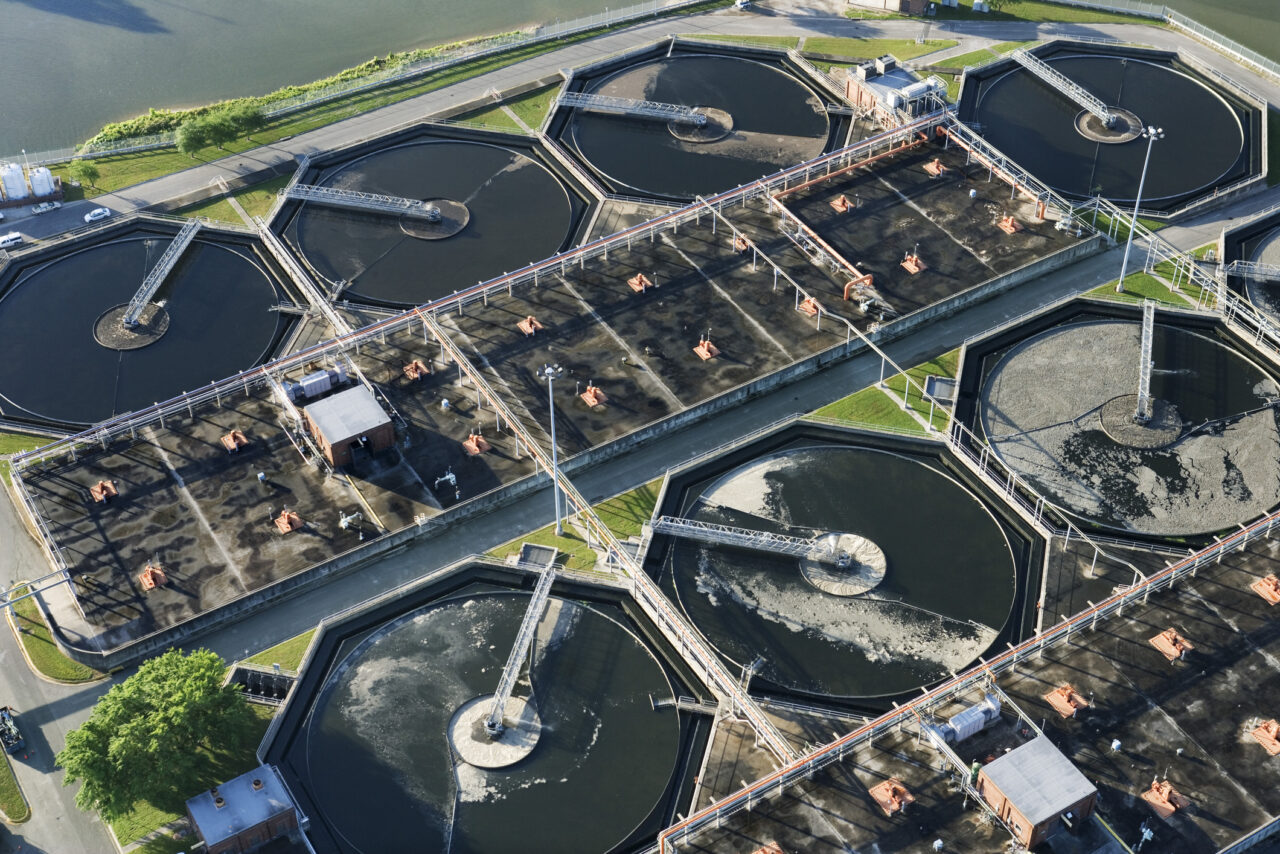
The project team focuses efforts on ensuring small, under-resourced, Tribal, rural and urban disadvantaged communities are engaged and served through the program. Communities in EPA Region 6 can request assistance here.
The Building Blocks of Trust
As highlighted by the Aguas del Norte Alliance example above, water utilities across the country are increasingly, and successfully, turning to partnerships with community groups, NGOs, and other cities and utilities to build capacity and advance water equity in their communities. The Building Blocks of Trust Initiative, developed by WaterNow and River Network, offers eight best practices for building trust-based partnerships between water utilities and community groups. As detailed in the report, successful and long-lasting partnerships depend on strategies such as prioritizing transparency and accountability, including the community as part of utility decision-making and highlighting shared community and utility goals to leverage mutual benefits. To learn more or participate in a Community Water Academy workshop to strengthen local water systems and build long-term partnerships, reach out to Caroline Koch, WaterNow Alliance Water Policy Director (cak@waternow.org).
Our partners, WaterNow and River Network are looking for input to build additional trust-building resources—take a quick survey from our partners to provide feedback.
NLC’s Local Infrastructure Hub
Visit the Local Infrastructure Hub, supported by NLC, focused on assisting small and medium-sized cities to access federal funds for infrastructure projects, including water and wastewater projects.
